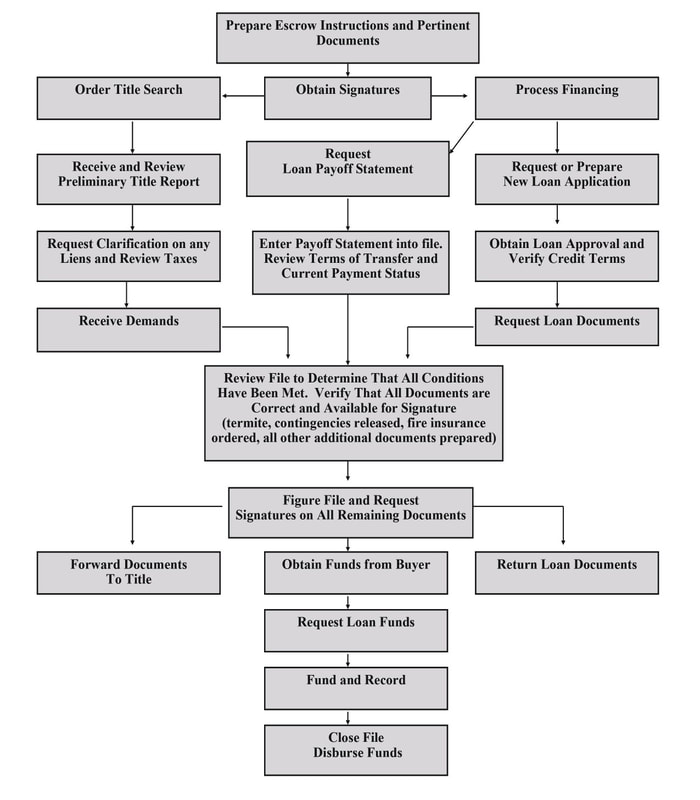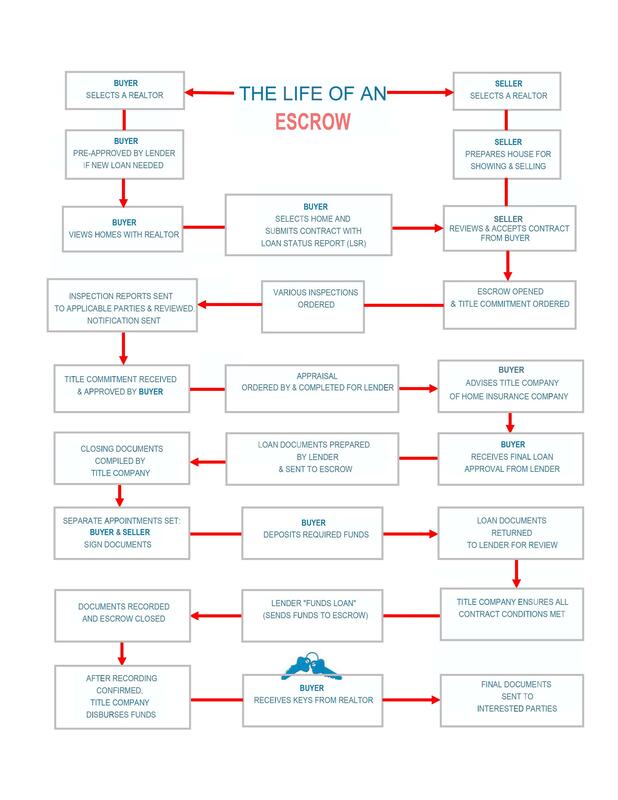The Escrow Process in Arizona |
WHAT IS AN ESCROW?
|
|
An escrow is a process wherein the Buyer and Seller deposit written instructions, documents, and funds with a neutral third party until certain conditions are fulfilled. In a real estate transaction, the Buyer does not pay the Seller directly for the property. The Buyer gives the funds to an escrow company who, acting as an intermediary, verifies that title to the property is clear and all written instructions in the contract have been met. Then the company transfers the ownership of the property to the Buyer through recordation and pays the Seller. This process protects all parties involved. See the chart on the right representing the Escrow Process from start to finish (click to enlarge). |
In Arizona, escrow services are generally provided by a title insurance company instead of an attorney.
HOW IS AN ESCROW OPENED?
|
Once you have completed the contract (or purchase agreement) and the Seller has accepted the offer, your Realtor will open the escrow. The earnest money deposit and the contract are placed in escrow.
See the chart on the right representing the life cycle of an escrow from start to finish. HOW TO HOLD TITLE?
You should inform your escrow officer and lender as soon as possible as to how you wish to hold title to your home, as well as letting them know exactly how you want your name(s) to appear on all documents. This allows your lender and title company to prepare all documents correctly (Changes later, such as adding or deleting an initial in your name, can delay your closing). Click here for the different ways to hold title in Arizona. You may wish to consult an attorney, accountant, or other qualified professional before deciding how to hold title.
|
WHAT HAPPENS DURING THE ESCROW PERIOD?
|
Your escrow officer follows instructions on your purchase contract, coordinates deadlines, and gathers all necessary paperwork.
|
|
transaction. The title department begins researching and examining all historical records pertaining to the subject property. Barring any unusual circumstances, a commitment for title insurance will be issued, indicating a clear title, or listing any items which must be cleared prior to closing. The buyer or buyer's lender will be informed of any items that will remain of record against the property after closing. |
|
|
- Copies of the Title Commitment, covenants, conditions, and restrictions (CC&R's) and termite inspection reports are forwarded to buyer, seller, and lender for their approval as received.
|
In Arizona, real estate agents are authorized to write purchase contracts and escrow/title companies are authorized to complete standard documents to close a real estate transaction. As a result, attorneys are not commonly engaged in real estate closings of residential property. The real estate professionals generally involved include the real estate agents, the escrow officer, and the buyer's loan officer.







